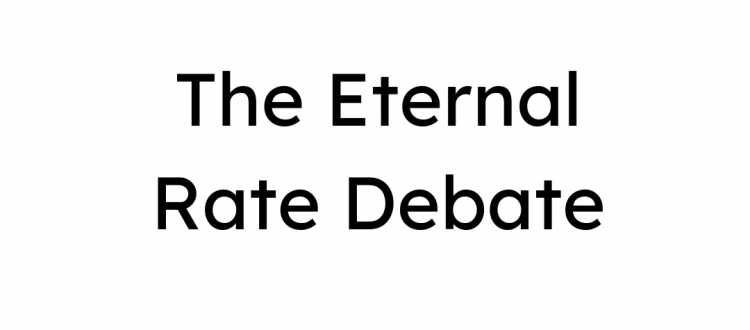The Eternal Rate Debate
Lets talk about the eternal rate debate that haunts all homebuyers – fixed, or variable?
One of the most daunting decisions you’ll have to make when buying your first home (or at least it feels that way) is whether to go fixed or variable.
This is an eternal debate in our world, but the truth is that there is no one-size-fits-all answer – there is only understanding how your options might align with your future goals and making the best choice for you (no pressure, right?)
Fixed rates are often the default choice for first-time buyers because they offer stability. Your interest rate and monthly payments stay the same throughout your loan term, which makes budgeting a breeze.
If you’re someone who likes predictability and peace of mind, this could be the way to go.
One drawback of fixed rates is that they tend to start higher than variable rates because you are essentially paying a premium for the comfort.
Plus, you won’t benefit from any drops in interest rates, which means you could end up paying more over time if rates go down.
So what about variable as an option, then?
These rates change based on the market, specifically tied to the Bank of Canada’s rate decisions. If rates drop, so does the interest you pay, which could mean lower monthly payments.
The upside of variable rates is that they’re usually lower than fixed rates, which can save you money if rates remain steady or fall over time. They also typically have lower penalties if you decide to break your mortgage early.
But as we’ve seen in vivid detail in recent years, variable rates come with uncertainty. If interest rates rise, so do your payments. This requires a level of financial flexibility and a tolerance for risk.
It’s important to consider whether you’re comfortable with potential fluctuations in your budget.
Considering the current market, with the Bank of Canada working towards normalizing rates, variable rates are gaining traction again. If you can handle some uncertainty and have room in your budget for possible rate increases, locking in a variable rate now might be advantageous.
If your budget is tight or you prefer the security of knowing exactly what your payments will be over time, sticking with a fixed rate might be your best bet.
Think about how long you plan to stay in your home and your overall financial stability. Both can influence whether a fixed or variable rate is better for your situation.
If you’re still unsure, let’s connect. Choosing the right type of mortgage rate is about more than just numbers; it’s about fitting your financial plan and lifestyle.
Whether you’re leaning towards the predictability of a fixed rate or the potential savings of a variable rate, making an informed decision that aligns with your long-term goals is crucial.
Book a time to Chat!: https://schedule.nylas.com/craig-fried-Discovery-Call
Craig Fried, MHA
Mortgage Agent, Level 2
Powered by Sherwood Mortgage Group Inc – 12176

